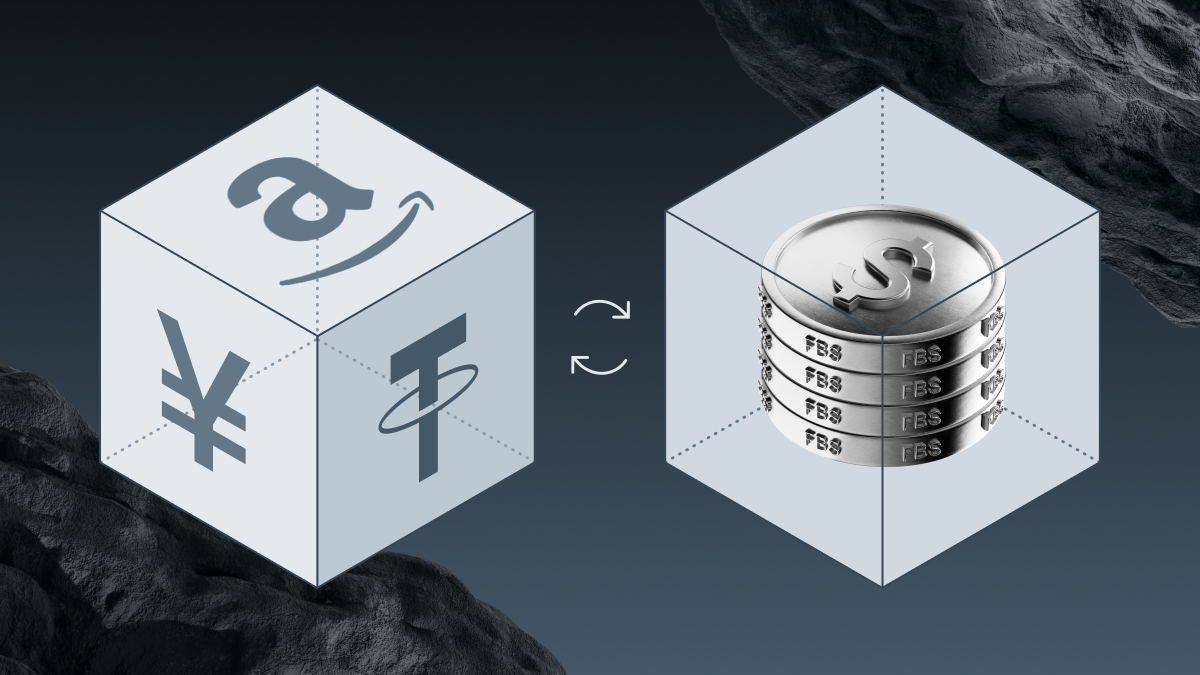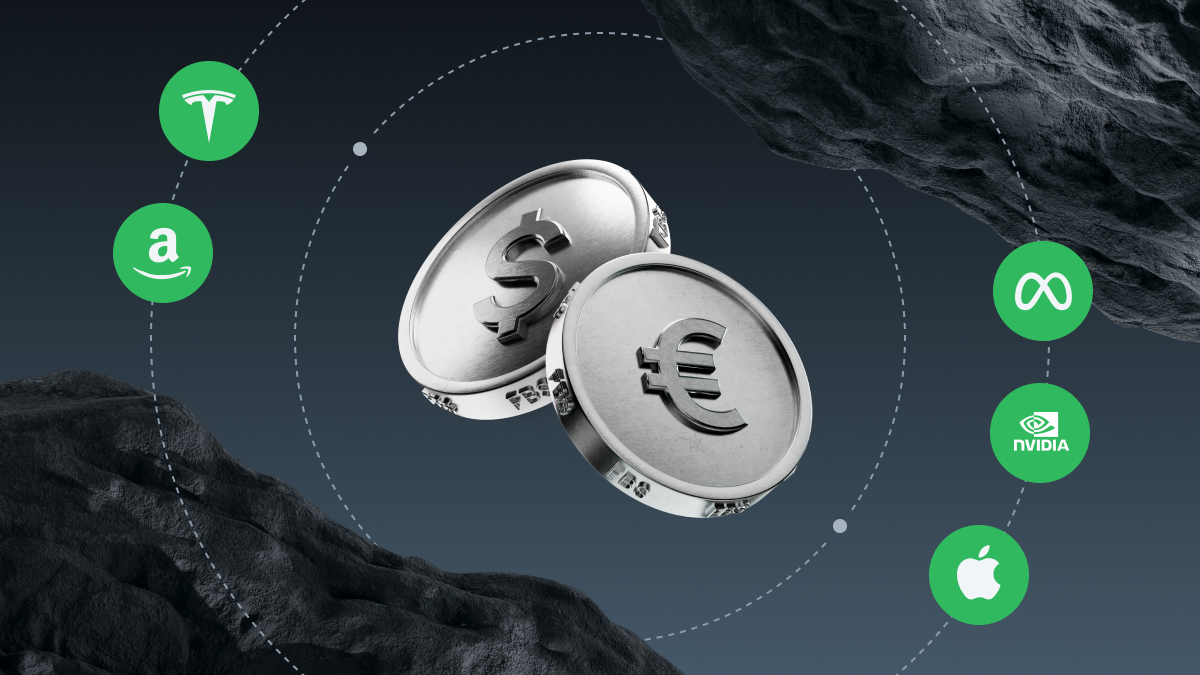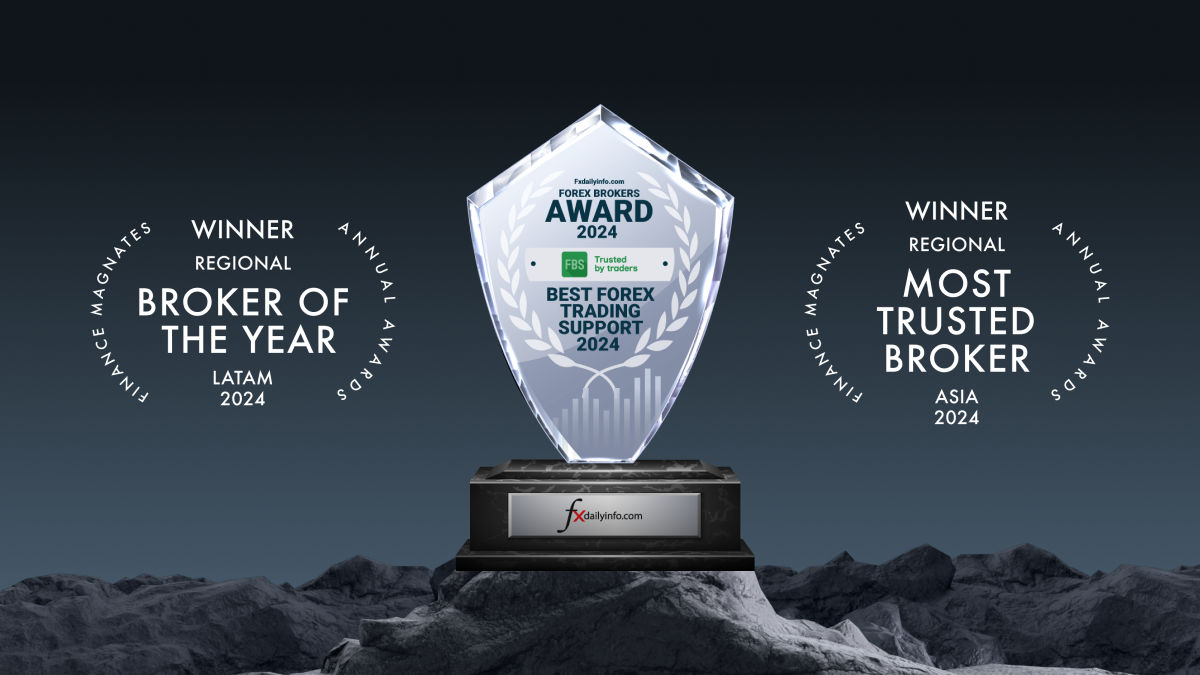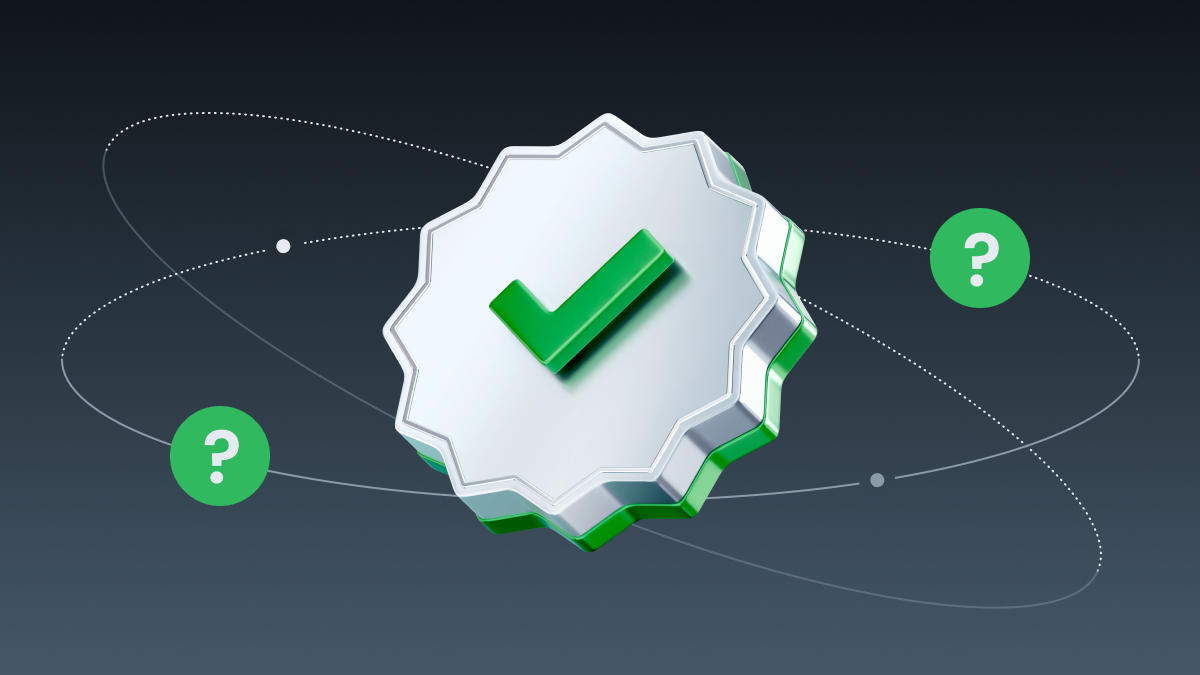
What is a broker & what does it do?
The term ‘broker’ is used in various spheres, such as real estate, insurance, mortgage, and so on. However, we mostly hear this word when discussing finances and trading оn the financial markets.
One needs a broker to trade оn the market or invest in stocks because individuals cannot access a securities exchange without an intermediary. Transactions can only be concluded by legal entities that have a license — banks, investment firms, and brokerage companies.
What is a broker?
A broker is an independent organization or person that manages financial transactions on behalf of another party. Simply put, a broker is an intermediary between a client and a service provider.
Nowadays, all brokers can be divided into different types by multiple parameters. This article explains what services brokerage companies provide, and what markets they perform on.
Though there are different kinds of brokers, they are all similar in that they provide online platforms for clients to perform their trades, and charge a fee for their service.

What is a full-service broker?
Some decades ago, a broker was a personal advisor who would share their opinion about what to buy and sell according to the situation on the market. Traders were fully dependent on this type of company. Nowadays, they are called full-service brokers, or financial advisors. These companies have a large team of financial analysts who monitor the markets and supply their clients with recommendations. In addition, they have banking divisions to provide some clients with access to special financial products, such as limited partnerships, and various exotic and alternative investment opportunities.
A full-service brokers’ fee is higher than other brokers’ fees.
What is a discount broker?
Unlike full-service brokers, discount brokers service more independent clients who do their own market research and take full responsibility for their financial planning. By allowing customers to manage their own trades, discount firms take lower or no commissions at all.
Other advantages of discount brokers that attract many people, especially beginners, include minimum deposits, free learning tools, and more. Besides, the internet has made investing and learning about it more accessible. The unbelievable leap in technology that the 21st century has brought has boosted online trading and investment. Nowadays, it is very common for brokerage companies to have at least one online platform for people to execute their trades.

What is a forex broker?
A forex broker is a company that provides 24-hour access to the Foreign Exchange (forex) market, one of the largest financial markets operating currency pairs.
A forex broker provides financial services by giving clients access to a trading platform to execute trades, such as buying and selling foreign currencies. Generally, trading with a forex brokerage firm includes:
no commission (but the spread is paid),
high leverage (high risk/high reward),
free trading tools such as charts and research.
Forex organizations find the best available prices in the security exchange and execute clients’ buy and sell orders. Of course, these companies do not work for free.
What is a stock broker?
A stock or investment broker is a financial company whose clients buy and sell stocks in a brokerage account. Stocks are traded on stock markets, which are like supermarkets, where companies list their stocks, and brokers help people buy and sell them using online platforms.
Unlike forex brokerage firms, stock brokers work fixed hours. They also charge fees for their services.
How to choose a broker
Nowadays, there is a wide range of financial companies alluring new clients with big profits and financial success. But you should be very careful when considering which brokers’ services to use. Here are some very important things every trader should pay attention to when choosing a brokerage company.
Reputation. Reliable brokers have to be honest and share all information, including risk, with their customers. Exaggerating and providing misleading information is not acceptable. Trustworthy companies receive recognition from people and get rewarded by respected financial experts.
Costs and fees. Make sure the broker does not require any extra payment, like an annual fee, an inactivity fee, a fee for subscription to their trading platforms, etc.
Assets. To maximize your chances of your trading turning in your favor, choose a broker with a wide range of financial assets, i.e. currency pairs to trade.
Education. It might be a good idea to stick to a broker that offers free courses, how-to guides, webinars, video tutorials, glossaries, etc.
Demo account. This is a very helpful option for testing the forex market with virtual money using a real market environment. Trading on a demo account is an excellent way to gain experience without risk and even a deposit.

What type of broker is FBS?
FBS is an international online broker in the forex exchange market. Founded in 2009, it currently has over 23 million active traders in more than 150 countries, from Malaysia and Indonesia to Latin America.
Reputation
The company’s clients rate its services highly, and all their reviews are free to access on different websites that rate brokers. FBS has been granted over 90 awards and trophies. 2024 brought the company and its products a number of prestigious awards, including:
-
Most Trusted Broker Asia (Finance Magnates Annual Awards, 2024)
-
Broker of the Year Latam (Finance Magnates Annual Awards, 2024)
-
Best Execution Speed Asia (Brands Review Magazin, 2024)
-
Best Forex Trading Education (FxScouts,2024)
-
Best Forex Trading Support (FXDaily, 2024)
-
Best Introducing Broker Programme (World Finance Magazine, 2024)
Fees and costs
FBS takes no commission, which makes it attractive to clients. There are no extra fees or costs, except spread, which is low and starts with one pip. That means you will pay the difference between the purchase and sell price. There is no inactivity or withdrawal fee. The minimum deposit of $1 is also very alluring to people.
Assets
FBS provides its clients with a wide range of trading instruments. We offer 70 CFD forex assets, including 28 regular financial pairs available for trading 24 hours a day, 5 days a week, and 42 forex exotic assets so that you can test your ideas by trading emerging market currency pairs.
All forex exotic instruments are available on MetaTrader 5. However, on MetaTrader 4, only a limited number of instruments are available. These include USDSGD, EURTRY, USDCNH, CNHJPY, EURCNH, USDMXN, USDTRY, USDZAR, and USDBRL.
FBS is a forex broker, but it also offers lots of other trading instruments, like metals, energies, and indices.
Education
At FBS, we believe in conscious and intelligent trading. That’s why we provide comprehensive educational materials through the FBS Academy, packed with valuable insights for traders of all levels.
FBS Academy
-
Trading tutorials where you can find trading concepts in engaging formats, including short videos and text-based lessons. We cover everything from using the MetaTrader 5 platform and understanding forex basics, to making your first trade. Text-based lessons delve into fundamental and technical analysis, risk management, and essential trading principles useful for all traders.
-
The Trader’s Blog which is our fastest-growing section, features new articles every week on trading strategies, trader lifestyle, market insights, and trading psychology. We continuously improve the blog with interactive content and fresh, relevant materials to enhance user experience.
Learning for all levels
The FBS Academy offers both introductory courses for complete beginners and in-depth materials for experienced traders.
-
Beginner’s course: This course guides new traders from the basics of forex to their first trade — and possibly their first profit.
-
Advanced courses: Designed for more experienced traders, these courses provide deep insights into topics like Japanese candlestick analysis, cryptocurrency trading, and algorithmic trading.
Built-in educational features
FBS also integrates educational sections within its products, such as FBS Trader and FBS CopyTrade. These tutorials include real-world examples, practical tips, videos, and a virtual assistant. The lessons are structured for all levels, from complete beginners with no financial background to seasoned traders seeking advanced strategies.
FBS AI Assistant
AI is reshaping every industry, and trading is no exception. Those who embrace it first will be the ones who succeed.
At FBS, we’re making sure our traders stay at the forefront. That’s why we created the next-gen FBS AI Assistant.
How FBS AI Assistant can benefit your trades:
-
Analyzes charts in seconds and offers instant insights.
-
You get simplified data as AI turns complex patterns into clear, easy-to-read reports.
-
Makes informed decisions faster by helping you spot key market signals.
-
Helps to minimize human errors with AI-powered analysis.
Demo accounts
To apply the knowledge gained from our educational sections, FBS offers free demo accounts. These enable new traders to practice trading without risking real money, and for pro traders to test new strategies before implementing them.

FAQs
What is a broker?
In the financial world, a broker is a company or person that operates financial transactions on another party's behalf. It is an intermediary between a client and a service provider.
A person cannot access financial markets without a broker because transactions can only be managed by licensed organizations — banks, investment firms, and brokerage companies.
What is a full-service broker?
A full-service broker is a financial advisor who monitors the financial markets and gives advice on buying or selling. They usually charge a fee for their services, which is higher than the fee of other types of brokers, like a discount broker.
What is a discount broker?
A discount broker works for those people who need only a platform for executing their trades. These brokers do not do market research for the clients and give no recommendations.
What is a stock broker?
A stock broker allows clients to use an online platform to buy and sell stocks. Like other companies, stock brokers charge a fee for their service.
What is a forex broker?
A forex broker provides access to the Foreign Exchange market, one of the largest financial markets operating currencies. The most attractive thing about the forex market is that it is accessible 24/7. Moreover, these companies do not take a fee; they earn on a spread — the difference between the purchase and sell price.
How to choose a broker
1) Reputation & reliability. In trading, just like in life, new things come with challenges. You need a trusted partner by your side to make things easier. The first thing to check for when choosing a broker is its reputation. Trustworthy brokers always highlight their reliability by partnering with large companies, brands, or sports clubs. Independent reviews on platforms like TrustPilot could also be a good indicator, as user feedback speaks volumes. Also, look into the broker’s industry awards.
FBS has received 4+ stars based on over 4000 reviews from our traders on TrustPilot. We’ve also received 90+ trophies, including the Client-Oriented Broker Traders Awards 2024, FxScouts Best Trading Account for Beginners 2023, Best Introducing Broker Programme 2024 by World Finance Magazine, and many more. These awards represent a testament to the trust, loyalty, and respect of our clients, partners, and the global trading community.
2) Costs & fees. Some brokers charge their clients fees, such as an inactivity fee, annual fee, or subscription fee. Make sure to check about possible fees before starting your trading journey with a broker.
3) Education & learning resources. If you’re new to trading, access to educational materials is essential. At FBS Academy, we provide comprehensive courses, tutorials, and guides to help traders of all levels navigate the markets. Our Trader’s Blog also offers fresh insights on trading strategies, psychology, and industry trends. Whether you're a beginner or an experienced trader, a demo account is a great tool for testing strategies and gaining confidence before trading with real funds.
4) Range of trading instruments. A diverse selection of assets gives you more opportunities to build a profitable portfolio. Look for brokers that offer forex, stocks, commodities, and more.




